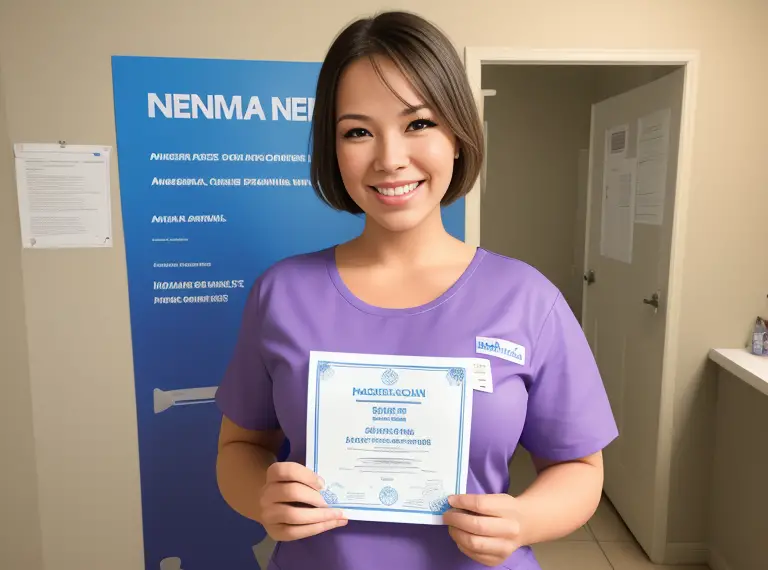Yes, as a nurse, you may have to do a residency program depending on your career goals and the requirements of your chosen nursing specialty. Residency programs are designed to provide additional training and support to nurses as they transition from the classroom to the clinical setting. While not mandatory for all nurses, residency programs offer valuable opportunities for professional growth and development.
Understanding Residency for Nurses
What is Residency in Nursing?
Residency in nursing refers to a structured training program that aims to bridge the gap between nursing education and practice. It is typically a period of intensive clinical training and mentorship that helps newly graduated nurses gain confidence and competence in their roles. Residency programs vary in length, but they generally last for a few months up to a year.
Why is Residency Important in Healthcare?
These programs help nurses build a solid foundation in their specialty, equipping them with the necessary tools and confidence to deliver safe and efficient patient care. Residency also helps healthcare facilities to ensure that their nurses are well-prepared to handle the complexities and challenges of the clinical setting.
How Residency Fits in the Nursing Career Path
Residency programs are particularly beneficial for new nurses who are transitioning from the academic setting to the clinical environment. By participating in a residency, you can:
- Gain hands-on experience in a supportive and structured environment
- Learn from experienced nurses and mentors who can guide and mentor you
- Develop advanced clinical skills and critical thinking abilities
- Build confidence in your nursing practice and decision-making
- Enhance your understanding of the healthcare system and the role of nurses within it
- Network and establish professional relationships with colleagues and healthcare providers
- Increase your chances of securing a job in a competitive nursing market
While not all nurses are required to complete a residency, it is highly recommended, especially for those pursuing specialized areas of nursing or aiming for advanced practice roles. Residency programs can provide you with a competitive edge and set you up for long-term success in your nursing career.
Different Types of Nursing Residencies
Residency for Registered Nurses (RNs)
Residencies for registered nurses (RNs) are typically offered by hospitals and healthcare systems. These programs are designed to provide comprehensive training and support to new graduates as they transition into the clinical setting. RN residencies often have a structured curriculum that covers various clinical areas, such as medical-surgical, critical care, pediatrics, and more.
Residency for Nurse Practitioners (NPs)
Residency programs for nurse practitioners (NPs) are relatively new but gaining popularity. These programs aim to provide advanced practice nurses with additional training and mentorship in their specific specialty. NP residencies allow NPs to further develop their clinical skills, gain autonomy in practice, and expand their knowledge base.
Specialty Residencies in Nursing
Apart from general residencies for RNs and NPs, there are also specialty residencies available for nurses who want to specialize in a particular area of nursing. These specialty residencies may focus on areas such as emergency medicine, oncology, obstetrics, or mental health. Specialty residencies provide nurses with in-depth training and expertise in their chosen field.
The Pros and Cons of Nursing Residency
Advantages of Undertaking a Residency Program
There are several advantages to undertaking a nursing residency program:
- Enhanced Clinical Skills: Residency programs provide opportunities for hands-on experience and skill development in a supportive environment. Nurses have the chance to practice and refine their clinical skills under the guidance of experienced mentors.
- Knowledge Expansion: Residency programs offer additional education and training that goes beyond what is learned in nursing school. Nurses gain a deeper understanding of their specialty and learn about the latest advancements in healthcare.
- Confidence Building: The structured nature of residency programs helps nurses build confidence in their abilities. Through mentorship and practical experience, nurses develop the necessary skills and confidence to make critical decisions in patient care.
- Networking Opportunities: Residency programs provide nurses with the chance to network and establish professional relationships with colleagues and healthcare providers. These connections can be valuable for future career opportunities and mentorship.
- Increased Job Prospects: Completing a residency program can make nurses more marketable to potential employers. Many healthcare facilities prefer to hire nurses who have completed a residency program as they are seen as more competent and well-prepared for the clinical setting.
Potential Drawbacks to Consider
Despite the benefits, there are some potential drawbacks to consider when deciding whether to pursue a nursing residency:
- Time Commitment: Residency programs can be time-consuming, especially if they last for several months or up to a year. Nurses may need to adjust their personal schedules and commitments to accommodate the demands of the program.
- Financial Considerations: Some residency programs may require nurses to pay a fee or cover additional expenses during their participation. Nurses should consider the financial implications of participating in a residency program and plan accordingly.
- Limited Flexibility: Residency programs often have a structured curriculum and schedule, leaving nurses with limited flexibility in their day-to-day activities. Nurses who prefer a more independent or self-directed learning style may find the structure of residency programs restrictive.
- Geographical Constraints: Residency programs may only be offered in specific geographic locations, limiting the options for nurses who are unable or unwilling to relocate.
It is important for nurses to carefully weigh the advantages and disadvantages of a nursing residency program based on their individual needs and career goals.
Preparing for a Nursing Residency
Tips for Successfully Navigating a Residency
- Research Residency Programs: Take the time to thoroughly research different residency programs to find one that aligns with your career goals and interests. Consider factors such as program length, curriculum, mentorship opportunities, and reputation.
- Network and Seek Advice: Connect with nurses who have completed residency programs or are currently participating in one. Seek their advice and insights to gain a better understanding of what to expect and how to make the most out of the experience.
- Prepare Mentally and Emotionally: Residency programs can be intense and demanding. Prepare yourself mentally and emotionally for the challenges and workload that may come with the program. Keep a positive mindset and be open to learning and growth.
- Set Goals: Before starting a residency, set clear goals for what you hope to achieve during the program. This will help guide your focus and ensure you make the most out of the experience.
Making the Most Out of Your Residency Experience
- Be Proactive: Take the initiative to seek out learning opportunities, ask questions, and actively participate in your training. Show enthusiasm and a willingness to learn.
- Seek Feedback: Request regular feedback from your mentors and preceptors. This will help you identify areas for improvement and guide your professional growth.
- Network and Build Relationships: Take advantage of the networking opportunities provided during the residency program. Build relationships with colleagues, mentors, and healthcare providers, as they can be valuable sources of support and guidance.
- Reflect and Learn: Take time to reflect on your experiences and learning during the residency program. Identify what worked well and areas for improvement. Use these reflections to continually enhance your skills and knowledge. End positively, offering reassurance and advice:
In conclusion, while not all nurses are required to do a residency program, it can be a valuable opportunity for professional growth and development. Remember, a residency program is an investment in your future as a nurse. Embrace the opportunity for growth and know that you are taking a step towards becoming a competent and successful nurse in your chosen specialty.
FAQs
Q: What is the average length of a nursing residency program?
A: The length of a nursing residency program can vary, but on average, they last between three to twelve months.
Q: Can I do a nursing residency if I am already an experienced nurse?
A: Yes, some residency programs are designed for experienced nurses who are transitioning into a new specialty or want to enhance their skills in their current specialty.
Q: Are nursing residencies paid or unpaid?
A: Most nursing residencies are paid positions. However, the salary can vary depending on the healthcare facility and the location of the residency program.
Q: How competitive is it to get into a nursing residency program?
A: The competitiveness of nursing residency programs can vary depending on the specialty and the demand for nurses in a particular area. It is advisable to apply to multiple programs to increase your chances of acceptance.
Q: Can I do a nursing residency if I am pursuing an advanced practice nursing degree?
A: Yes, some nursing residency programs are available for nurses pursuing advanced practice degrees, such as nurse practitioners or clinical nurse specialists.
Q: Can I do a nursing residency if I completed my nursing education outside of the United States?
A: Some nursing residency programs may accept candidates who completed their nursing education outside of the United States. However, it is important to check with individual programs for their specific requirements.
Q: Can I choose the specialty I want to focus on during a nursing residency program?
A: Some nursing residency programs allow you to choose a specific specialty, while others may provide a more generalist experience. It is important to research and find programs that align with your desired specialty.
Q: Can I apply for a nursing residency before I graduate from nursing school?
A: Yes, many nursing residency programs accept applications from nursing students who are in their final semester of nursing school. However, acceptance may be contingent upon successfully passing the licensing examination.
Q: Can I work part-time while participating in a nursing residency program?
A: It is best to check with individual residency programs regarding their policies on part-time work. Some programs may have restrictions on outside employment due to the demands and intensity of the program.
Q: Will completing a nursing residency guarantee me a job?
A: While completing a nursing residency can increase your chances of securing a job, it does not guarantee employment. The job market and availability of positions can vary, and other factors such as interviews and qualifications will also play a role in the hiring process.














